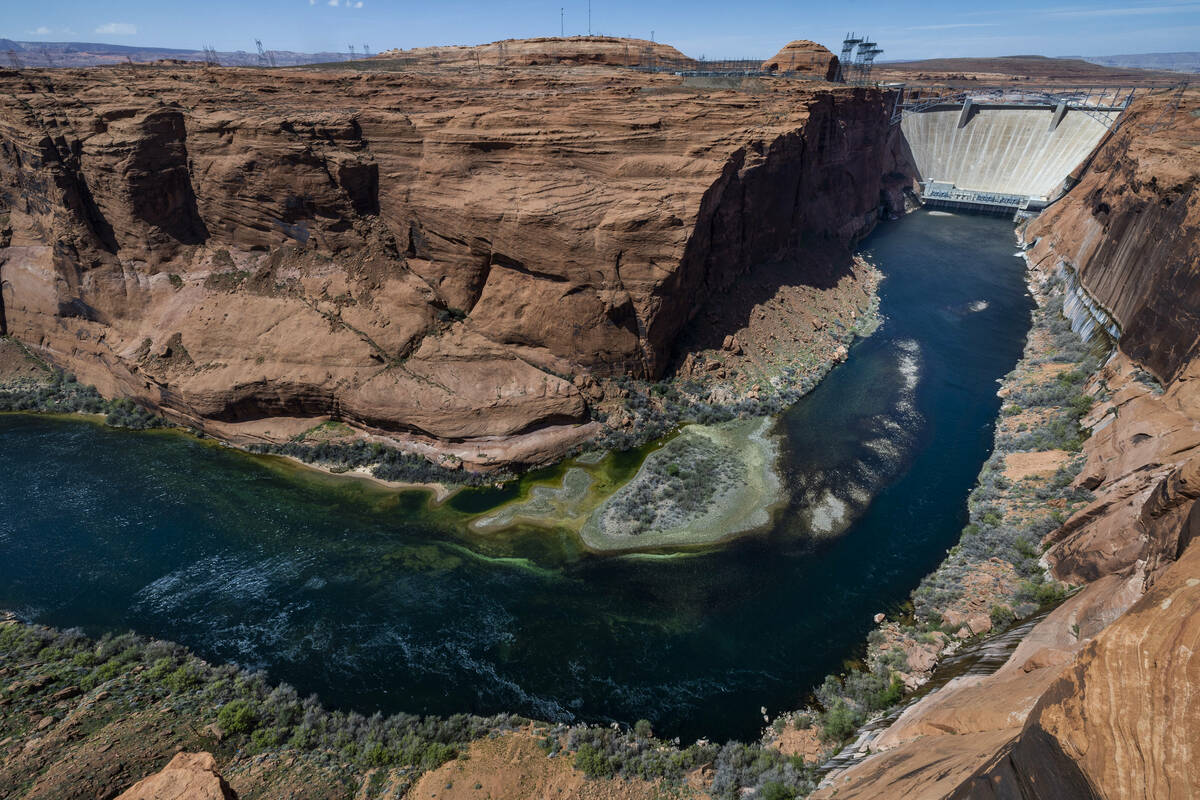After pushback, proposed septic tank conversion likely to be voluntary
State lawmakers are expected to heavily amend a water conservation bill that irked Las Vegas Valley septic tank owners because of concerns that the government could force them to connect to the municipal sewer lines.
An amendment expected to be adopted to Assembly Bill 220 next week would eliminate a provision that sought to require several thousand septic tank owners in Southern Nevada to abandon their systems and hook into the sewer lines as a way of saving a small chunk of Nevada’s share of the Colorado River.
The proposed amendment brings a sigh of relief to the septic owners across the valley who have pushed back on the bill since it was introduced in March. Several owners expressed concern that the original bill would have penalized them for something that was out of their control decades ago.
That includes Thomas Trenholm, who said he put in a septic tank on his property when it was built in the 1980s because the nearest sewer line at the time was some 2,000 feet away.
“I think it’s going in the right direction. I think they listened to what people had to say,” Trenholm told the Las Vegas Review-Journal.
Under the amendment submitted by Sen. Rochelle Nguyen, D-Las Vegas, the Southern Nevada Health District could create a voluntary program that would pay for the costs for property owners to abandon their systems and connect to the sewer lines.
The original bill, which was proposed by the Southern Nevada Water Authority and sponsored by the Assembly Natural Resources Committee, would have mandated those septic tank owners in Clark County who also get water from a municipal supplier to connect to the sewer before 2054.
Prior to the proposed amendment, the local health and water agencies would have covered at least 85 percent of the costs under the bill, which would have affected about 5,000 of the estimated 15,000 homes with septic tanks in the valley.
The Southern Nevada Water Authority is supporting Nguyen’s amendment, according to authority spokesman Bronson Mack, who added that it reflects the concerns that septic owners raised over the last two months about the original proposal.
The vast majority of homes in the valley are connected to the sanitary sewer lines, which allows for water used indoors that goes down a drain or a toilet to be treated, reclaimed and recycled back to Lake Mead, where Las Vegas gets about 90 percent of its water.
For every gallon the valley treats and puts back into the reservoir via the Las Vegas Wash, it can pull out an extra gallon. Those return flow credits have allowed Nevada to stretch its tiny share of the Colorado River much further than its 300,000 acre-foot annual allocation.
But water that goes through a septic system can’t be returned to Lake Mead for credit, and instead seeps into the ground.
Some septic users like Trenholm recognize the water that converting could save the region. But with costs to convert totaling anywhere from tens of thousands of dollars to upward of $100,000, having to foot even a portion of the bill was a major concern for many of the septic owners.
The amendment also would give the health district the ability to impose a fee on septic tank owners who get water from a municipal supplier to fund those conversions. Approving such a fee would require a two-thirds vote of the district’s board, and the fee could not exceed the annual sewer rate, or about $250 in Clark County.
The original bill estimated that the mandatory program could lead to roughly 200 conversions a year. Whether the water district would be able to convert the same number of systems annually under voluntary programs remains to be seen, Mack said.
“It will still put us on a path to be able to improve water efficiency and have a mechanism to be able to start to reclaim some of that water that does get lost in septic systems,” Mack added.
The bill still needs approval from the state Senate and the governor after it passed on a 30-12 vote in the Assembly last month. It is scheduled to be heard in the Senate Natural Resources Committee on Tuesday.
Contact Colton Lochhead at clochhead@reviewjournal.com. Follow @ColtonLochhead on Twitter.
















